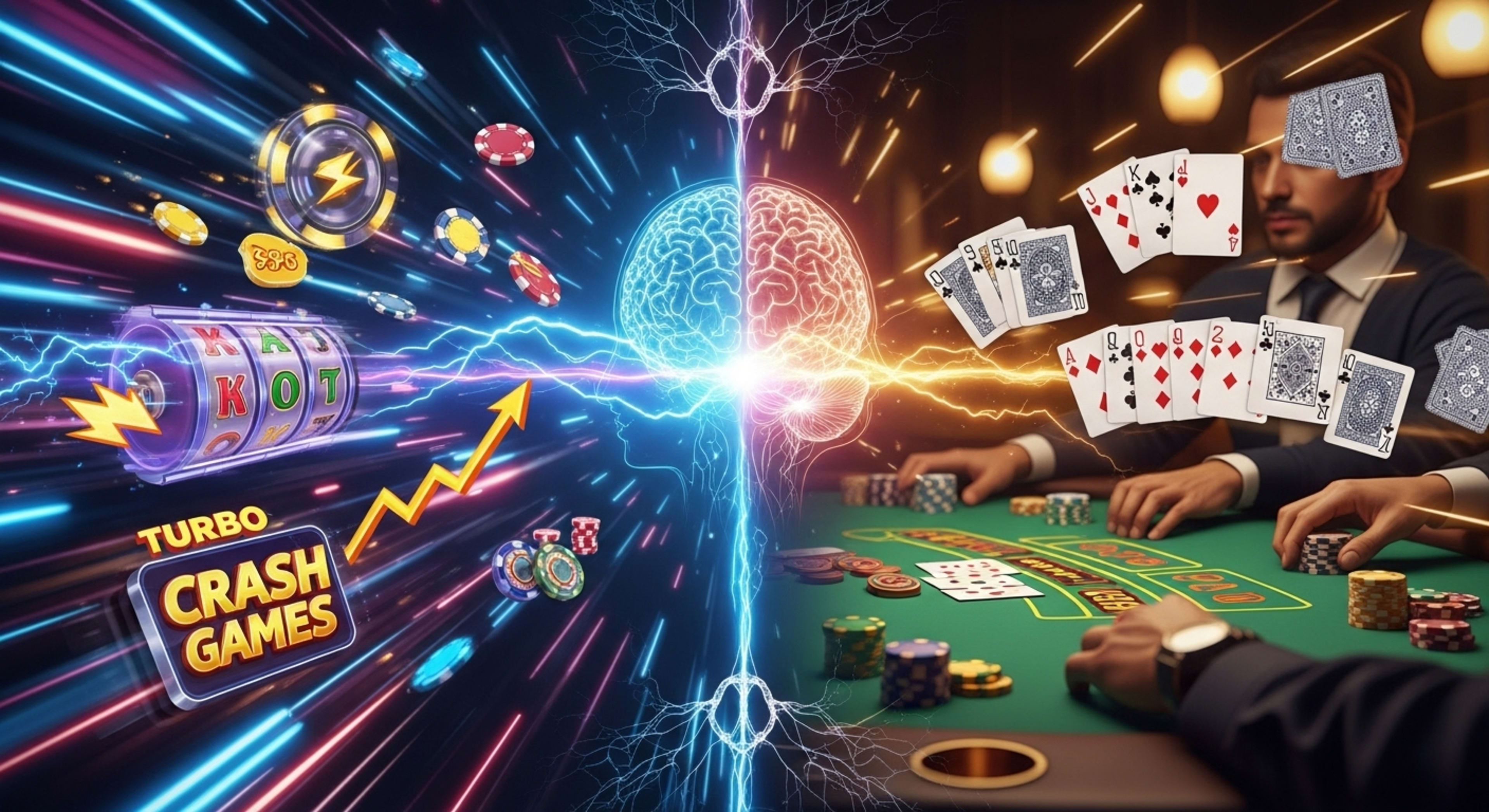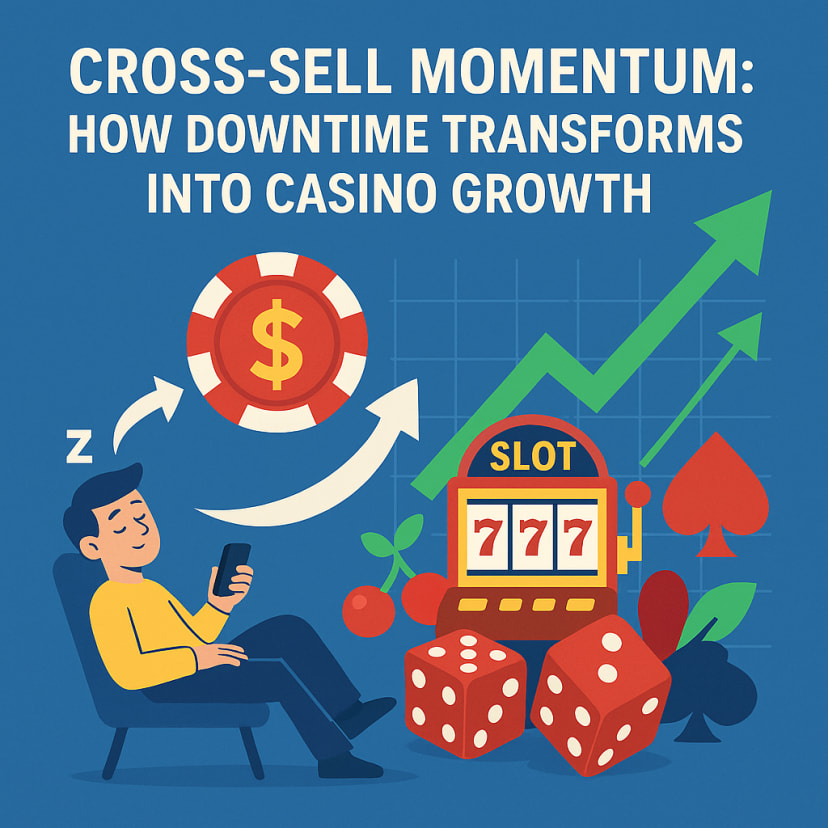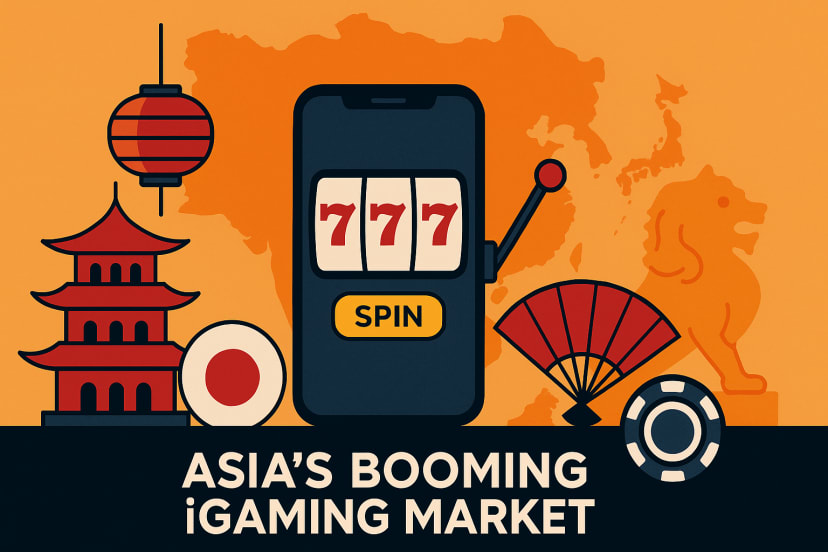How Game Speed & Rewards Influence Casino Player Psychology

Every casino game—from lightning-fast crash titles to slow-paced poker tables—relies on one unshakable truth: the human brain loves anticipation. Game speed and reward timing determine how strongly players engage, how long they stay, and what emotions they associate with play.
This guide explains how online casinos utilize pacing, feedback loops, and reward systems to influence player psychology. We’ll explore why instant results heighten excitement, how reward intervals impact motivation, and why striking a balance between the two is essential for sustainable engagement.
The Psychology Behind Speed in Casino Games
The tempo of a game sets its emotional tone. Fast gameplay keeps the brain stimulated through rapid feedback, while slower formats allow for strategic thinking and emotional control. In both cases, pacing shapes how players perceive risk, reward, and satisfaction.
Fast-paced games such as crash, instant wins, or turbo slots deliver immediate feedback. The brief delay between action and result creates a feedback loop that stimulates the release of dopamine, driving anticipation. This is known as “variable ratio reinforcement,” a concept proven to increase engagement across interactive entertainment.
In contrast, table games like blackjack or baccarat rely on slower, deliberate rounds. The pacing allows for cognitive participation—decision-making, prediction, and self-control—activating different emotional pathways tied to mastery rather than impulse.
| Game Type | Average Round Duration | Player Experience | Dominant Emotion |
|---|---|---|---|
| Crash / Instant Games | 5–10 seconds | Fast, impulsive, high-energy | Excitement |
| Slots (Standard) | 10–20 seconds | Continuous flow, easy repetition | Anticipation |
| Live Dealer Games | 30–90 seconds | Immersive, socially interactive | Connection |
| Table Games | 60+ seconds | Strategic, controlled | Focus |
Studies from Eilers & Krejcik Gaming indicate that games offering short, rhythmic cycles of anticipation can increase average session times by up to 22%, provided players perceive themselves as being in control.
Reward Systems: Timing Is Everything
Rewards are not just prizes—they’re psychological reinforcements. How and when players are rewarded determines the emotional cadence of gameplay.
Casino designers use reward schedules to sustain engagement, mixing frequent small wins with occasional large payouts. This balance keeps dopamine levels fluctuating, ensuring a feeling of continuous possibility.
Fast feedback loops (e.g., instant wins, mini bonuses, quick multipliers) sustain excitement, while delayed or milestone rewards (e.g., jackpots, missions, collections) build long-term motivation.
The Three Core Reward Structures
| Reward Type | Frequency | Player Reaction | Purpose |
|---|---|---|---|
| Frequent Small Wins | Every few rounds | Continuous motivation | Keeps play rhythm steady |
| Intermittent Big Wins | Unpredictable intervals | Emotional spikes | Reinforces excitement |
| Progressive / Narrative Rewards | Long-term | Sense of achievement | Builds loyalty and attachment |
Balanced correctly, these reward systems turn each session into a series of emotional peaks and resets, maintaining engagement without overwhelming the player.
The Anticipation Loop: Why Fast Feels Better
Human brains are wired to crave feedback. The shorter the wait between action and result, the more powerful the anticipation becomes. This mechanism, known as the dopamine loop, is what makes spinning a slot reel or watching a crash multiplier climb so compelling.
In casino design, anticipation loops rely on:
- Predictable rhythm: Regular rounds that establish a sense of flow.
- Micro-rewards: Small, visually reinforced outcomes that provide instant feedback.
- Unpredictable climax: A rare, significant win that resets emotional investment.
By blending these dynamics, operators maintain excitement and perceived control—two core drivers of engagement. However, speed without structure can quickly lead to fatigue, so balance is key.
Balancing Speed and Sustainability
The most successful casino games strike a balance between stimulation and relaxation. Too fast, and players burn out; too slow, and they disengage. Sustainable pacing allows moments of excitement followed by brief emotional cooldowns.
This is why top-performing titles often introduce tempo variation, alternating between rapid-fire sequences (such as free spins and bonus rounds) and slower, more deliberate phases (like choice-based bonuses, leveling, or mini-narratives).
For operators, the pacing strategy directly impacts:
- Session length: Measured by emotional endurance.
- Retention: Sustained excitement over days or weeks.
- Player satisfaction: Emotional balance rather than constant intensity.
A 2025 CasinoRank Insight Survey found that games that balance short bursts of excitement with structured downtime retained players 31% longer than those that are consistently fast-paced.
Responsible Game Design and Emotional Awareness
Understanding player psychology carries ethical weight. Game speed and rewards can easily cross the line from engagement to over-stimulation if not designed responsibly.
Ethical operators prioritize transparency and control by incorporating features such as adjustable spin speeds, clear win probabilities, and optional pause timers. They also communicate volatility levels and encourage self-regulated pacing.
Responsible design ensures that emotional engagement remains positive—based on entertainment and challenge rather than compulsion. Maintaining that integrity is vital to long-term brand credibility.
Conclusion
Game speed and reward design are powerful psychological tools that shape how players experience online casinos. When used thoughtfully, they create excitement, anticipation, and satisfaction. When misused, they risk overwhelming the player.
The most effective casino games today strike a balance between immediacy and intention—fast enough to thrill, yet paced enough to sustain engagement responsibly. For developers and operators, mastering that balance is the key to designing experiences that players trust, enjoy, and return to.
FAQ
Why does game speed matter so much in casino design?
Game speed determines how quickly a player experiences feedback. Faster cycles keep dopamine levels high and maintain excitement, while slower pacing promotes strategy and emotional balance. Both have their place, depending on the target player experience.
How do reward systems influence player motivation?
Rewards trigger anticipation and satisfaction. When wins are frequent enough to encourage play but unpredictable enough to create suspense, players remain engaged. Designers refer to this as a variable reinforcement schedule, and it’s the psychological engine behind sustained motivation.
Are faster games always more engaging?
Not necessarily. While fast games provide instant thrills, they can also lead to fatigue if overused. Slower formats, such as live dealer tables or poker, offer strategic satisfaction and longer emotional arcs. The best engagement models combine both—fast bursts with slower, meaningful pauses.
Can operators ethically utilize game speed and rewards?
Yes. Ethical design is about transparency and player control. Operators who clearly display win probabilities, offer voluntary speed settings, and promote responsible play can still achieve high engagement without manipulating player behavior.
What’s next for casino game psychology?
The next frontier is adaptive pacing—AI-driven systems that adjust game speed and reward timing based on individual player behavior. These tools will make gaming more personalized and sustainable, ensuring excitement without crossing into over-stimulation.















